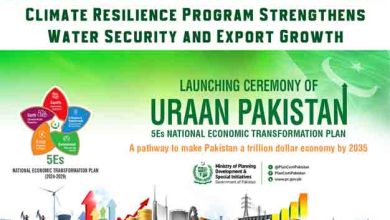Shocking Surge: Climate Change and Poverty Threaten 41 Million Lives by 2050, Warns World Bank
A new World Bank report warns that climate change and poverty are deeply linked, with 41 million at risk of extreme poverty by 2050 if action is not taken.
Climate Change and Poverty are two of the most pressing global issues today. When combined, their impact is catastrophic. According to a powerful new report by the World Bank titled “The Future of Poverty”, climate change may push 41 million people into extreme poverty by 2050.
This projection is not a distant possibility—it is a likely scenario if the world fails to address the worsening effects of climate change, particularly on vulnerable populations in developing countries.
Key Highlights from the World Bank Report
-
41 million people could fall into extreme poverty by 2050 due to climate-induced income losses.
-
South Asia alone could see 48.8 million people pushed into poverty by 2030.
-
Sub-Saharan Africa, Latin America, and the Caribbean are among the most affected regions.
-
Global economic output could fall by 23% by 2100 if no action is taken.
-
Rising food prices, driven by climate shocks, will hit the poor hardest.
These projections paint a dire picture of the future unless immediate action is taken to decarbonize economies, invest in resilience, and support the most vulnerable.
Why South Asia and Africa Are Most Vulnerable
The report emphasizes that South Asia and Sub-Saharan Africa are at highest risk. Both regions already struggle with poverty, food insecurity, and weak healthcare systems. Add extreme weather events like floods, droughts, and heatwaves—and the result is a perfect storm for social and economic instability.
-
In South Asia, climate variability threatens agriculture, a sector that employs the majority of the rural poor.
-
In Sub-Saharan Africa, the combination of high population growth and fragile institutions compounds the problem.
Low-income countries are least responsible for greenhouse gas emissions but will suffer the most, creating a deep injustice at the heart of the climate crisis.
How Climate Change Deepens Poverty
Climate change creates a vicious cycle that traps the poor:
-
Loss of Livelihoods – Droughts and floods destroy crops and livestock.
-
Rising Food Prices – Reduced supply leads to soaring food costs.
-
Health Shocks – Climate-sensitive diseases like malaria and cholera spread faster.
-
Forced Migration – Displaced families lose access to education and income.
-
Weakened Infrastructure – Schools, hospitals, and roads suffer damage.
These interconnected issues push families into chronic poverty, making it harder to recover from even minor setbacks.
Solutions: What Needs to Be Done
The World Bank lays out clear recommendations:
Invest in Resilience
Governments should strengthen infrastructure, develop early warning systems, and promote climate-smart agriculture.
Reduce Inequality
Even minor increases in income inequality can significantly increase poverty levels. Inclusive growth must be prioritized.
Improve Social Protection
Safety nets, including cash transfers and food assistance, can protect the most vulnerable during climate disasters.
Promote Low-Carbon Growth
Switching to renewable energy, improving energy efficiency, and reducing deforestation can reduce emissions while boosting economic growth.
Invest in Education and Healthcare
Education empowers communities to adapt. Healthcare improves resilience to climate-related health impacts.
The Role of International Cooperation
The report strongly urges wealthy nations to step up:
-
Financial Support – Increase climate finance to help low- and middle-income countries.
-
Technology Transfer – Share clean energy technologies and climate adaptation tools.
-
Capacity Building – Strengthen institutional frameworks in vulnerable nations.
“The countries most responsible for climate change must help those who suffer the most,” the World Bank emphasizes.
This aligns with the Paris Agreement’s principle of common but differentiated responsibilities.
Consequences of Inaction
If global temperatures rise unchecked and emissions remain high:
-
Global income losses could exceed 20% by 2100.
-
Agricultural production could decline dramatically.
-
Mass displacement and social unrest could increase.
-
Poverty will deepen, reversing decades of progress in development.
This isn’t just a climate issue—it’s a development emergency.
Internal & External Resources
Internal Link:
External Links:
Conclusion: A Call for Urgent Action
The World Bank’s warning is clear: Climate change and poverty are inseparably linked, and time is running out. The 41 million people projected to fall into extreme poverty by 2050 represent real lives, real futures, and real communities.
But there is still hope.
With bold action, strong leadership, and global cooperation, it is possible to mitigate these effects, protect vulnerable populations, and build a more just and resilient future for all.







